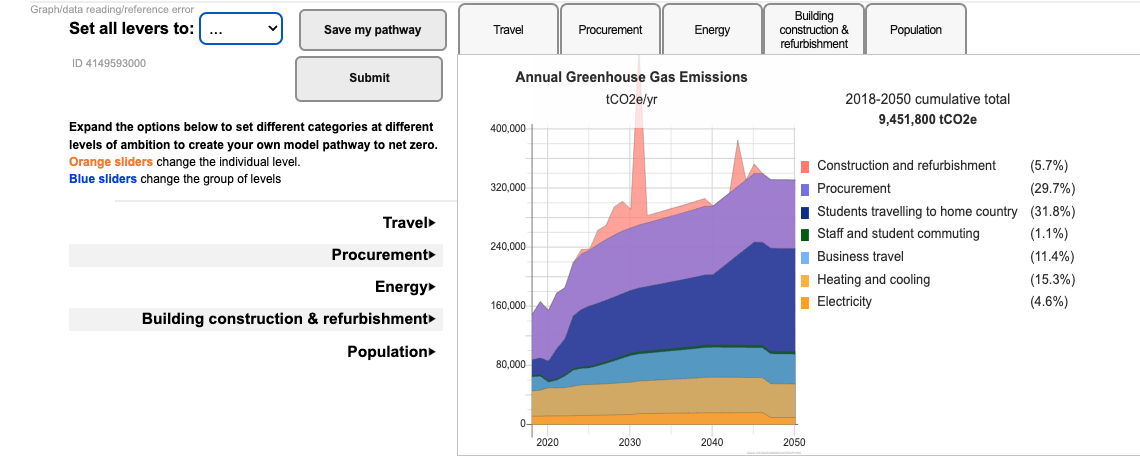A new digital resource designed to assist organisations in identifying feasible pathways to achieving net zero emissions has been launched by Imperial College London. The Imperial Transition Pathways Explorer is a web-based tool that enables users to examine the potential climate outcomes of various decarbonisation measures, facilitating the development of effective carbon mitigation strategies for both UK and international organisations.
The Transition Pathways Explorer is grounded in Imperial’s extensive emissions reduction model, which utilises operational data and expert input to analyse different decarbonisation approaches. The platform is particularly valuable for organisations seeking to assess the implications of diverse technological and behavioural options, allowing them to simulate varied levels of ambition and implementation timings.
The levels of ambition specified within the tool range from a ‘business as usual’ approach, which maintains historical trends, to more ambitious strategies requiring significant behavioural changes towards achieving net zero. Specifically, organisations can select from four levels:
- Level 1 entails maintaining current activities and trends.
- Level 2 represents achievable actions that are widely regarded as practical by stakeholders.
- Level 3 demands significant changes that are challenging yet feasible.
- Level 4 encapsulates the most ambitious actions possible, while recognising physical, engineering, and behavioural limitations.
By blending different levers and degrees of ambition, users can model a variety of emission reduction pathways, with results illustrating both annual emissions levels and cumulative emissions projections from 2018 to 2050.
Professor Nigel Brandon, Chair of Imperial’s Sustainability Strategy Committee and Dean of the Faculty of Engineering, stated: “As a world-leader in research on decarbonisation, Imperial is uniquely placed to deliver the scientific, technological and policy solutions needed to support the transition to zero carbon. The Imperial Transition Pathways Explorer uses our expertise to model Imperial’s potential pathways towards net zero emissions.”
The tool is built upon insights gained from over a decade of developing interactive emissions models, such as the 2050 Calculator and other national calculators, which have been integral in informing policymakers and government strategies worldwide.
Harriet Wallace, Director of Sustainability at Imperial, remarked that the Explorer is focusing their sustainability efforts where the most substantial reductions in carbon footprint can be achieved, particularly highlighting the transition away from gas heating and into more sustainable travel and procurement methods.

The Explorer can be adjusted to show the impact of different scenarios.
The development of this tool is a collaboration between the Imperial Sustainability Hub and the Centre for Environmental Policy. It is believed to be the first model of its kind on an institution-wide scale. The tool is intended not only for organisational analysis but is also being integrated into teaching programmes across the university.
The Sustainability Strategy of Imperial College aims to set a benchmark in university sustainability, aspiring for net zero carbon emissions on its campuses by 2040. As part of its broader initiative, Science for Humanity, the university is leveraging its strengths in research and education to serve as a catalyst for positive change.
The Transition Pathways Explorer facilitates decision-making processes by providing clarity on the effectiveness of various sustainability policies, thereby enabling organisations to engage in constructive dialogue about necessary actions and timelines. Having undergone peer review by sustainability professionals across different institutions, the Explorer is now available for utilisation and aims to encourage feedback from sustainability experts.




